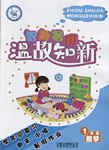题目内容
Speak, speak, speak!
Practise speaking as often as you can. Speaking to yourself is good practice.
Try recording yourself whenever you can.
Compare your pronunciation with the master version(原版)to see how you can do better and have another go. If you do this several times, you will find that each time is better than last.
Why not learn with someone else?
It helps if you can learn with someone else. If you can persuade a friend or family member to study with you, it will make you keep working.
Don't get stuck by a word you don't know.
Practise improving ways of getting your meaning across when speaking spontaneously(本能地),even if you don't know the exact words or phrases. Think of things you might want to say whenever you have spare time. Use facial expressions, hand movements, anything to make yourself understood.
Language learning is also about intuition(直觉).
Guesswork is an important way to learn a new language. When listening to recorded material, you aren't expected to understand everything first time round. If you play the same piece several times, you will most probably understand something new each time.
Build up your vocabulary.
A wide vocabulary is the key to successful language learning but don’t try to learn too much at once. It’s best to study frequently, for short periods of time. Take at most six or seven items of vocabulary and learn them. Put them into sentences to fix them in your mind, and then come back to them later.
And above all, have fun!
【小题1】 What’s the purpose of this passage?
| A.To tell us the importance of practicing speaking as often as we can. |
| B.To tell us a few tips to help us learn a new language well. |
| C.To tell us that guesswork is an important way to learn a new language. |
| D.To tell us that a wide vocabulary is the key to successful language learning. |
| A.Have another try or attempt. |
| B.Move away from a place to another. |
| C.Enter a certain state or condition. |
| D.Follow or take a certain course. |
| A.practice speaking as often as possible |
| B.study frequently, for short periods of time to build up our vocabulary |
| C.try to understand everything and stop when we meet a new word |
| D.try to persuade a friend or family member to study with us |
| A.speaking as much as possible | B.having fun |
| C.a wide vocabulary | D.guesswork |
【小题1】B
【小题2】A
【小题3】C
【小题4】B
解析试题分析:文章主要讲解了如何来更好的学习一门语言,提出了几点建议。
【小题1】主旨题。文章介绍了学习语言的秘诀,所以本文的写作目的是告诉我们学好一门语言的一些技巧,故选B
【小题2】推断题。根据后文If you do this several times, you will find that each time is better than last.可知要反复的进行练习,对比,你就会发现每一次都比上次好,故选A
【小题3】细节题。从文章Don't get stuck by a word you don't know.及When listening to recorded material, you aren't expected to understand everything first time round.可知我们没有必要去理解所有事情并且不应该被一个生单词困住,故选C
【小题4】细节题。最后一段And above all, have fun!最重要的是有乐趣,故选B
考点:教育类说明文
点评:本文文脉清晰,结构很好把握。说明文是历年高考很常见的文体,对于科技类的说明文比较难,而对于说物的文体较容易。本文中,把握好作者对语言学习提出的各个建议。同时,此类文章细节题居多,在对文章看懂了的基础再仔细对比选项和文章,即可得出答案。

 智趣暑假温故知新系列答案
智趣暑假温故知新系列答案 英语小英雄天天默写系列答案
英语小英雄天天默写系列答案 暑假作业安徽少年儿童出版社系列答案
暑假作业安徽少年儿童出版社系列答案